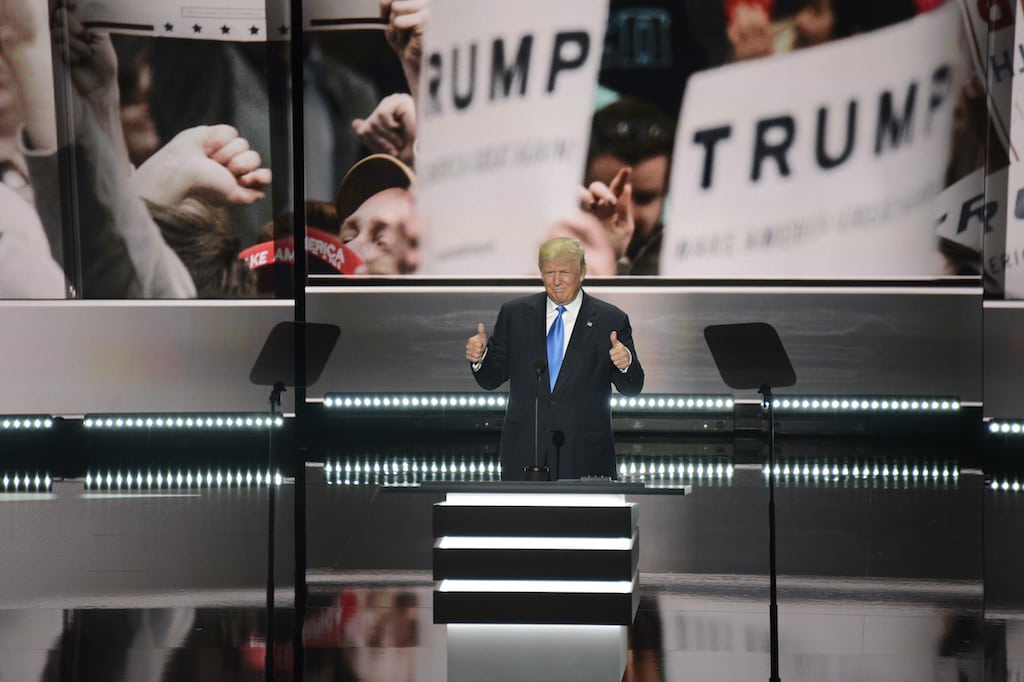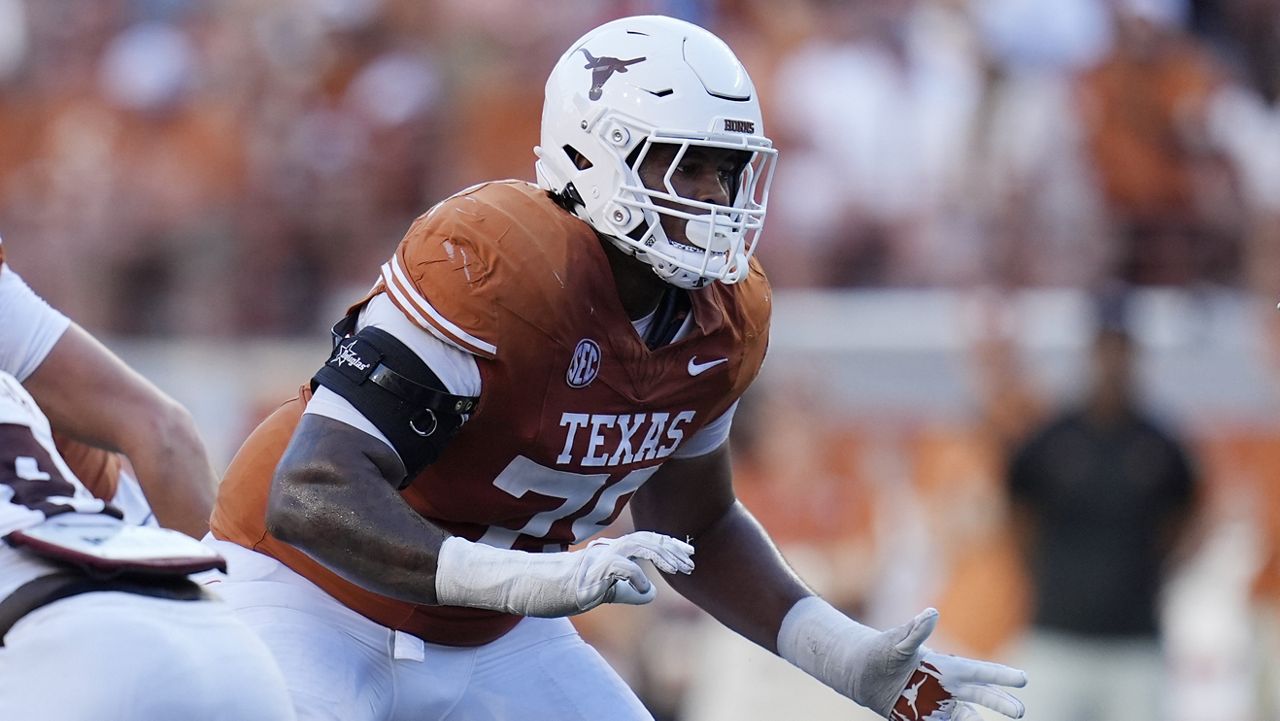World
Saudi Arabia World Cup 2034: Dates, stadiums, tickets – and will alcohol be served to fans?

Over a year after Saudi Arabia was left as the only candidate running to land the 2034 World Cup, their status as hosts was finally rubber-stamped by FIFA this afternoon.
An extraordinary congress, played out online and attended by all 211 member associations, waved through the unopposed bid (only Norway objected), ensuring the Gulf nation will follow the centenary tournament of 2030, also today confirmed for Spain, Portugal, Morocco, Argentina, Uruguay and Paraguay.
Saudi has its big moment after years spent lobbying and can now finalise plans to become the first country to host a 48-team tournament alone.
Expect misgivings and scrutiny to run throughout the decade that will lead up to the opening ceremony in Riyadh, although Gianni Infantino, FIFA’s president, maintains Saudi will be worthy hosts.
The Athletic looks at everything we know so far about the 2034 World Cup finals.
When will it be played?
We start with a big question currently without an answer. But if the traditional calendar of European football was thrown off kilter in 2022 when Qatar hosted the first winter World Cup, it would be well advised to brace for more disruption 10 years from now.
Saudi’s climate would be inhospitable to a tournament played through the traditional slot of June and July, where the average daily temperatures in Riyadh and Jeddah, according to Saudi’s own bid data, range between 32 and 38 degrees Celsius (89.6 degrees Fahrenheit to 100.4°F).
A summer World Cup has never been dismissed outright to this point but the expectation is for FIFA, emboldened by doing it once with Qatar, to move things around. “We are committed to working closely with FIFA to determine the best time of the year for the competition,” it said in Saudi’s bid prospectus.
There are complications unique to Saudi, though. As their own bid made clear, Ramadan, the Muslim month of fasting and prayer which runs from mid-November to mid-December 2034, and the annual Hajj pilgrimage, where millions head to the Saudi city of Mecca, “need to be taken into account” when deciding on dates for the World Cup.
Millions of pilgrims travel to Mecca for the annual Hajj pilgrimage (AFP via Getty Images)
That would leave January 2034 as the most probable date, provided it concludes ahead of the Winter Olympics, scheduled to begin in Salt Lake City on February 10, to keep sponsors of both global events content.
The obstacle to that plan is the resistance that will come from domestic leagues and club competitions.
The 2022 World Cup, concluded seven days before Christmas, squeezed domestic seasons and another played in January, now a month where Champions League games are played since UEFA’s expanded format, will not sit comfortably given the need for clubs to release players a week before the competition begins. The Premier League season, for example, ground to a halt for 43 days in the 2022-23 season.
Another consideration is the growing unease of players’ unions in Europe, who believe there is already too much being asked of the elite footballers. FIFA, who have jurisdiction over the international match calendar, are already very much in their crosshairs and are the subject of a legal challenge launched this summer.
How many teams will be there?
From 2026, the number of competing nations at World Cups will be raised from 32 to 48. The same format will extend to 2030 and 2034, giving another 16 teams the opportunity to qualify.
That will mean a lot of action. The 12 groups of four teams each will see us watch 72 games before we even get to the knockout stages, with the eventual winners playing eight times.
The only team guaranteed to be there at present? Saudi, as hosts.
What are the host cities and venues that have been lined up?
Unlike the 2026 World Cup, due to be played in 16 cities across the U.S, Canada and Mexico, and the 2030 competition, spanning three continents and 20 different cities, 2034 will have a far more insular feel — more similar to Qatar 2022.
The 104 games will all be staged in Saudi and the vast majority of those will come in just two cities. Although Al Khobar, Abha and Neom have been named as host cities, capital city Riyadh and Jeddah, a port city on the Red Sea, will be home to 12 of the 15 stadiums used.
Riyadh, with a population twice the size of Qatar’s, will have eight venues, including the 92,000-capacity King Salman International Stadium. Named after the father of Mohammed bin Salman Al Saud and current ruler of Saudi Arabia, Salman bin Abdulaziz Al Saud, it will host the opening ceremony and final.

An artist’s impression of the new King Salman Stadium in Riyadh (Populous via Getty Images)
A concern for human rights activists is the scale of building work ahead of Saudi playing host in 10 years. Eleven of the 15 venues are to be built from scratch, with the other four undergoing major refurbishment work, something which is likely to increase scrutiny of workers’ rights in the kingdom.
The Aramco Stadium, currently being built in Al Khobar, is due to be ready in time for the 2027 Asian Cup but the majority are projects where ground is yet to be broken.
Neom, a proposed newly-built city next to the Red Sea, will have one host stadium and, according to the bid book, has also been earmarked as an eye-catching host for the World Cup draws, which will be staged at The Line Convention Centre, also yet to be built.
How and when will tickets be made available?
We’re a long way from knowing those details and even further away from tickets going on sale.
The process for the 2026 World Cup finals is yet to begin and, if the most recent World Cup in Qatar is a guide, the first phase of sales will begin 10 months before the first ball is kicked. FIFA said that window saw 17million ticket requests made, including 1.8m for the final alone.
The 2022 event had prices pitched between £190 ($243) and £60 for group games but FIFA did create a category for Qatari locals, who enjoyed the cheapest tickets available.
If we take the average capacity of the 15 venues in Saudi as roughly 55,000, that will mean an estimated 5.7million tickets will be up for grabs during the entire competition.
Will LGBTQI+ supporters be welcome in Saudi?
Awarding the World Cup to Saudi promises to lead FIFA down another awkward road. As with Qatar in 2022, same-sex relations are illegal in Saudi and punishable by strict penalties. The maximum sentence that can be imposed is the death penalty.
Saudi maintain that any visitors to the country are already welcomed and that will extend to their role as World Cup hosts in 2034.
“You will be respected,” Hammad Albalawi, head of the Saudi bid, told Sky Sports in September. “You will be welcome in Saudi Arabia and that respect and welcome is to everyone from all around the world. We respect the privacy of all of our guests.”
That draws parallels with the approach adopted by Qatar two years ago but tolerance had its limits at that tournament.
Plans for the captains of seven countries to wear “one love” armbands, using the rainbow colours to oppose the ban on same-sex relations, were dropped on the eve of the tournament after FIFA threatened to book any player wearing one. The governing body’s rules prohibited the use of any “political, religious or personal messages or slogans”.
That decision led to Germany posing for the traditional on-field pre-match team photograph with their hands over their mouths, which their then head coach Hansi Flick said was designed “to convey the message that Fifa is silencing teams”.
Joshua Kimmich, the Germany international, recently said that he regretted making the gesture, telling a press conference: “We expressed political opinions and it took a bit away from the joy of the tournament. It was an outstanding World Cup in terms of organisation.
“Western countries represent views which we think are universal and should be true everywhere. We as a country are feeling that we also have problems, our own building sites.”

Germany protest at being ‘silenced’ by FIFA in Qatar (Alexander Hassenstein/Getty Images)
There were also a number of incidents that saw rainbow flags, hats and clothing taken from supporters and journalists in Qatar.
Laura McAllister, the former Wales captain and a gay woman, told the BBC that she felt intimidated after being told to remove a rainbow-coloured bucket hat when attending her country’s opening game against the U.S. Wales fans were then assured by tournament organisers that the hats would be allowed for their remaining games.
The question marks hanging over Saudi’s human rights record are explained at length in this article by The Athletic’s Jacob Whitehead.
Will alcohol be available to visitors?
Saudi Arabia is a dry state, with the sale and consumption of alcohol banned for over 70 years. Reuters reported in January that a shop would open in Riyadh for non-Muslim diplomats and that would indicate the potential for laws to be relaxed by the time 2034 rolls around.
The broader Gulf region has seen laws around alcohol relaxed in recent times and it was made available to visiting fans during the Qatar World Cup in hotels and restaurants.
The fan zone at Al Bidda Park in Doha allowed beer to be sold between 7pm and 1am but that availability did not extend to the venues. Fans were told just 48 hours before the opening game that Budweiser, the event sponsor, would not be on sale at stadiums, except for those in corporate hospitality areas.
Saudi will have learned much from their neighbours hosting in 2022 but they have their own big decisions to make ahead of 2034.
(Top photos: Getty Images; design: Dan Goldfarb)










